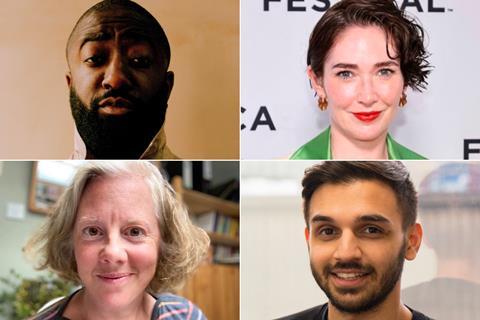
The four winners of the inaugural BFI and Chanel filmmakers awards reveal their next steps as they varriously plot a move into features, an AR project, a fresh documentary and a rewilding project in the Scottish Highlands.
Baff Akoto
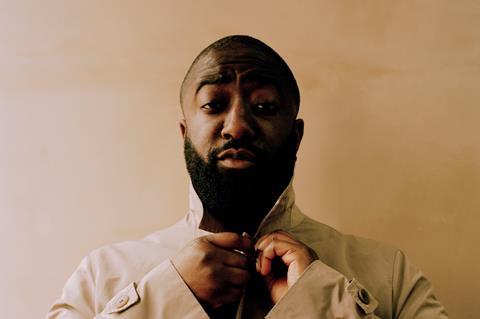
Akoto’s career looks quite different to the one that tipped him as a Screen Star of Tomorrow in 2018. After debuting in 2009 with the 52-minute documentary Football Fable, the filmmaker moved into regular TV directing on BBC series’ Holby City and Doctors throughout the 2010s.
Now, Akoto is turning his attention to augmented reality (AR) and producing – the latter of which can be seen in Nana Mensah’s Queen Of Glory. The UK-US film, about a Ghanaian-US woman who wants to drop out of collage to follow her married lover cross-country, premiered at Tribeca in 2021 where it scooped up best new narrative director and a special jury mention.
“As a baby TV director, you have no control over anything,” the London-based filmmaker says. “I wanted to have more control over the stories I wanted to tell and bring into the world.”
Mensah, who is Akoto’s cousin, was regularly sharing scripts with him already when she sent over the screenplay for Queen Of Glory around 2011/2. Having never produced a feature film before, Akoto called up his friend Dominic Buchanan, whose credits include Colette andThe End of The F***ing World, for advice. Buchanan put him in touch with US producer Jamund Washington, with whom he had just collaborated on Gimme The Loot. Washington brought in US actor Kelley Robbins to join them as producers on the film.
“The journey of making [Queens Of Glory] has sort of mirrored the way we’ve all become more entrepreneurial. It’s developed into how I work now, always with that producing mindset,” Akoto says.
Akoto has also been showcasing recent AR-infused sculpture exhibitions at various art galleries, and hopes to bring AR into some film-related projects he has in the pipeline. “I remember reading that Francis Ford Coppla was always looking at what was the latest and most edge technology in cinema,” he recalls. “And if it’s good enough for Coppla, it’s good enough for me.”
Alongside new AR projects, Akoto plans to put the prize money towards two projects he has in development. One is an untitled animation which “uses vampire mythology as an allegory for alienation”, and the other is a neo-Western crime thriller that Akoto hopes to start shooting next year in the US.
Kathryn Ferguson
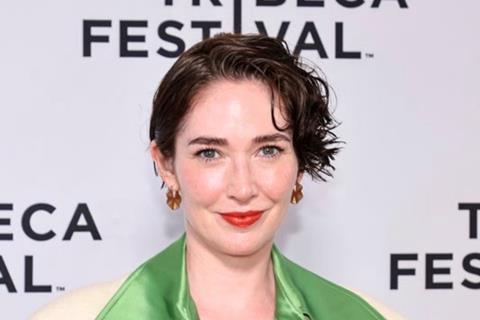
The Belfast-born, UK-based documentarian began her filmmaking career while studying fashion at Central Saint Martins arts school in London in 2007. The course involved shooting fashion videos and working with designers but admits she “desperately wanted to hear people speaking”.
While making a short film at college entitled Máthair (Irish for mother), Ferguson contacted the managers of Irish singer-songwriter Sinead O’Connor to use some of O’Connor’s music in the film. The managers agreed and a few years later were back in touch with Ferguson asking her to shoot O’Connor’s first music video in 15 years.
After meeting her co-producers Michael Mallie and Eleanor Emptage in 2018, and securing funding from Northern Ireland Screen, Screen Ireland and BFI Doc Society, Nothing Compares finally began to take shape.
The documentary about O’Connor’s difficult childhood in Dublin and the peak of her career, for better or worse, in 1993, made its world premiere at the online Sundance Film Festival in January of this yeare. It went on to play the Tribeca, Edinburgh and Belfast film festivals, winning the audience award at the latter.
Ferguson says the BFI-Chanel prize will largely be going towards her next project, another feature documentary, though this time “it’s not about someone with a well-known name”.
Erfan Saadati
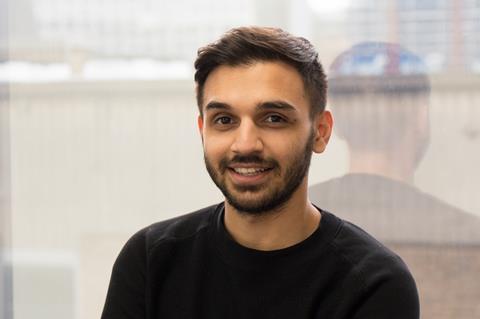
The Iranian-born filmmaker remembers a huge turning point in his career ambitions while attending a masterclass in Barcelona by acclaimed Iranian director Abbas Kiarostami. “He was reviewing one of my first edits and he looked at me and said ‘are you here to have fun or are you here to work?’,” Saadati recalls. “That really hit a nerve in me.”
Saadati moved to Romania when he was eight and has been settled in west London for the past 12 years. Much of his work incorporates VR and 360˚ film as a means of “immersive storytelling”.
In 2016, he collaborated with the National Theatre to create Home: Aamir, a verbatim short film about a 22-year-old Sundanese refugee. It won the grand jury prize for VR at the UK’s Encounters International Film Festival, before screening atSheffield Docfest and at IDFA in Amsterdam.
Child Of Empire was funded by BFI Doc Society and uses animated VR. Told through the lens of a child, the short docu-drama observes a conversation between an Indian Hindu who migrated from Pakistan to India, and a Pakistani Muslim who made the opposite journey. It had its world premiere in the Frontier strand of the Sundance Film Festival earlier this year.
Saadati is mostly looking to use the prize money as “breathing space” for him and his collaborators to develop new ideas, though his overall aim is to shift away from docu-dramas and into fiction features.
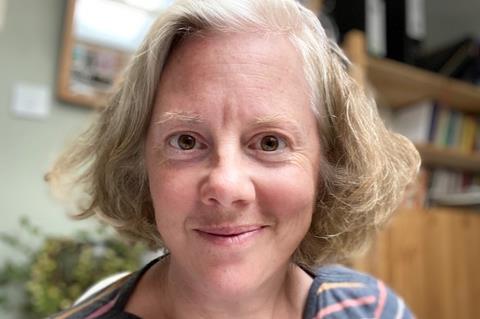
Sam Firth
Living in the Scottish Highlands might not seem like the most practical location for a filmmaker, but Firth notes “it’s quite useful to be an outsider” for a documentary director.
Born in London, Firth had always immersed herself in film. From working at various festivals to studying screenwriting – the latter of which made the director quickly realise she “wanted to make the films [she] was writing instead”.
Her first film I.D in 2009 was just one-minute long but managed to pick up a number of awards, including a special British mention at Encounters in the DepicT! strand.
Like all her work, her debut feature documentary The Wolf Suit is a highly personal work. It charts Firth’s parents’ divorce from the three different perspectives involved and interweaves archive footage, interviews and dramatic re-enactments from professional actors.
It was produced by Lacunae Films and screened at last year’s BFI London Film Festival in the Journey strand. This helped the film secure completion funds – a business model Firth notes is “unconventional” and “not recommended”.
Two years ago, Firth and her partner bought 140 acres of Scottish rainforest. Now, she plans to use some of the prize money to make a documentary exploring their journey rewilding the croft.























No comments yet